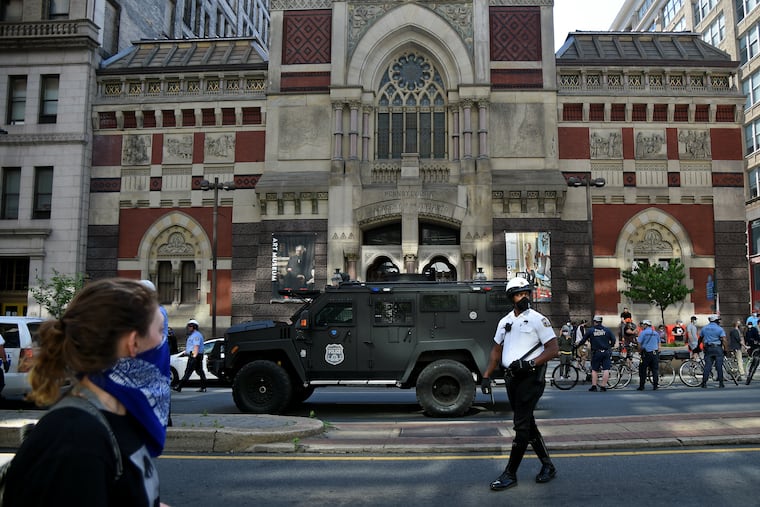Amid Black Lives Matter movement, PAFA has more work to do | Opinion
Pennsylvania Academy of the Fine Arts alum: PAFA is happy to take the tuition money of its BIPOC students, but turns its back on real, lasting infrastructural change that could support a safe and anti-racist environment within the school.

The Pennsylvania Academy of the Fine Arts is the oldest accredited art school and museum in the United States. It was founded 60 years before the abolition of slavery and maintains an important legacy both in this country and in the city of Philadelphia. Alums include some of the most well-known American historical art figures and contemporary art stars, from Thomas Eakins and Mary Cassatt to Njideka Akunyili Crosby and David Lynch.
In 2020, PAFA’s cultural standing is in jeopardy. In the midst of this important moment, when the country is holding up a mirror to its own inherent white supremacist infrastructure, PAFA, with its glaringly white leadership, remains incapable of real self-reflection.
This was exemplified on June 12, when faculty received an email cautioning them not to publicly affiliate themselves with PAFA when participating in a protest or signing a petition. Reported in a recent article in Billy Penn, the email was a direct response to multiple PAFA faculty and staff signing an online petition titled “Philly Arts for Black Lives,” which calls on the city to reinvest in human services over its police department, and supports the Black Lives Matter movement.
Of course, PAFA is not alone as an institution needing systemic changes. Starbucks stumbled in their response to recent events by banning employees from wearing Black Lives Matter apparel, though after much outcry it reversed the policy. Closer to home, the South Street Whole Foods was the scene of a protest this week as employees hoped to reverse a company policy banning clothing and accessories with insignia and slogans, including Black Lives Matter gear.
Unlike these two examples, however, PAFA is not a for-profit company, but a nonprofit institution of higher learning. Its community is not comprised of employees and customers, rather staff and students who place their trust in them. Nonaffiliation policies are not uncommon for private institutions, but enforcing one only after faculty express their support of BLM speaks to what — and who — PAFA considers a priority. The article sparked online outcry over the institution’s behavior from current students, faculty, and alums, all of whom were outraged but not particularly surprised. This is not the first time the school has been criticized for being damagingly ignorant to the needs of its broader community.
PAFA president and CEO David Brigham’s response to the article was disturbingly out of touch. Claiming vaguely that “facts in this story were not reported accurately or were misinterpreted,” and that PAFA’s policy is on par with other institutions, he pointed to a number of initiatives that PAFA has taken toward “critically examining [its] own practices in order to do more to advance the causes of racial justice and equity in the future.” This includes a years-old “formal commitment to diversity” and a “Belonging Task Force,” neither of which has a transparent agenda, or resulted in clearly visible change within the infrastructure of the school.
PAFA is happy to take the tuition money of its Black and other students of color, but turns its back on real, lasting infrastructural change that could support a safe and anti-racist environment within the school.
As a 2012 PAFA graduate who continues to live and work in Philadelphia, I feel embarrassed to be associated with a school that is so woefully antiquated in its approach to navigating the current political climate. I am ashamed to be an alumna of an institution so preoccupied with remaining neutral that it is incapable of taking a stand for basic human decency and basic rights for their Black students and colleagues or supporting its faculty in their pursuit of equity.
Samantha Mitchell is a Philadelphia-based artist, writer, and arts educator. She lives in Germantown.